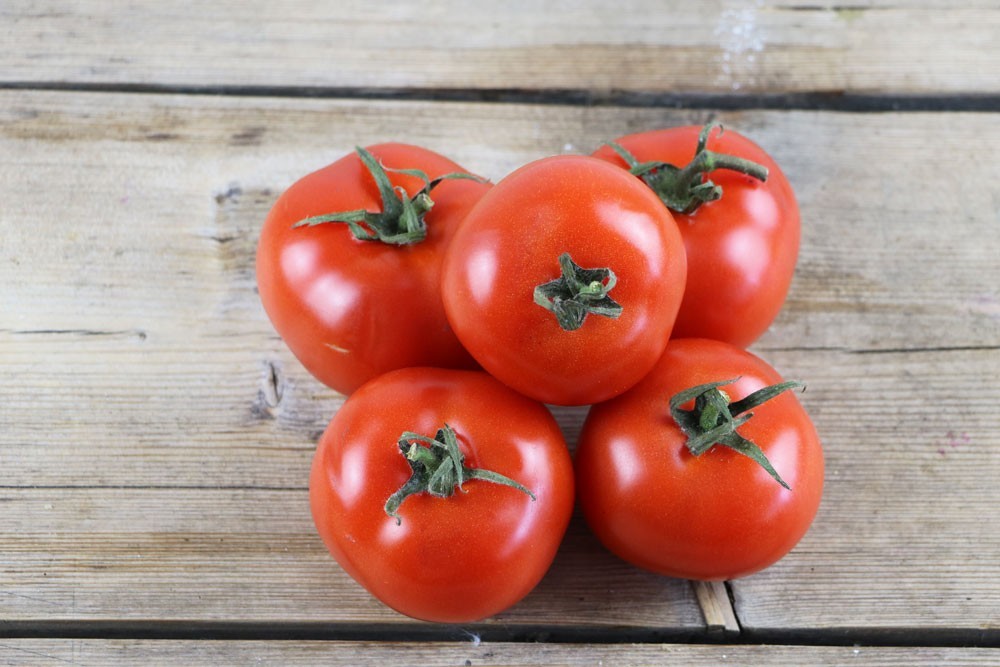Tomatoes have high nutrient requirements, so they should be fertilized regularly. Generally, the plants are fertilized throughout the season, and the amateur gardener can choose from different preparations. Accordingly, the fertilizers can also be adapted to the respective degree of maturity of the tomatoes and the time of the season.
Contents
From when to fertilize tomatoes?
If you sow the tomatoes yourself, you usually use appropriate growing soil for this purpose. This is very low in nutrients, so that the roots are stimulated to grow. Fertilizing during sowing would therefore be counterproductive and should be avoided as far as possible. It is better to fertilize tomatoes at the earliest at the following times:
- about 2 to 4 weeks after setting out
- fertilize with a complete fertilizer
- in the previous year autumn enrich with compost
- Soil becomes rich in nutrients
Until when to fertilize?
Tomatoes can basically be fertilized throughout the season. The decisive factor here is the choice of the appropriate fertilizer, because there are both short-acting and long-term fertilizers. The latter release their nutrients over a longer period of time, but they also require some start-up time. In general, it can be said that mineral fertilizers provide the plants with nutrients in the short term, whereas organic fertilizers are designed for a long-term effect.
Liquid fertilizers
Liquid fertilizers are among the mineral fertilizers and are particularly popular for cultivation in tubs. Their composition is optimally adapted to the needs of tomato plants, so that they are supplied with all the important nutrients. Liquid fertilizers should always be applied from the beginning to the end of the season, paying attention to the following:
- at the earliest from the 2nd week after planting out
- fertilize every 2 to 3 weeks until flowering
- weekly after fruit set
- until the end of the season
Fertilizer sticks and drops
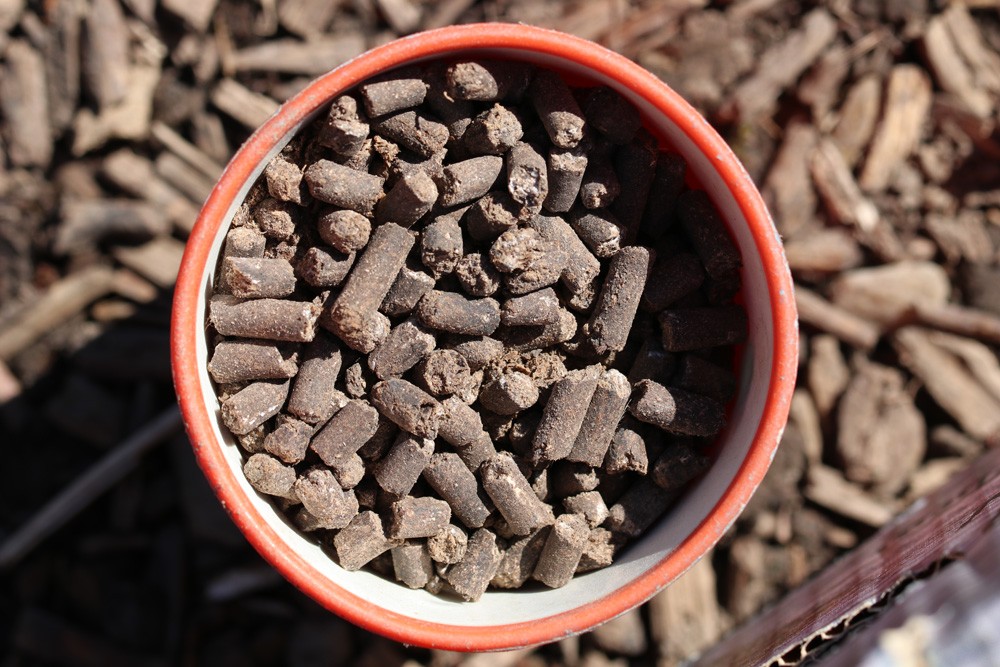
Fertilizer sticks and drops also belong to the mineral fertilizers, but they are characterized by their long-term effect. The fertilizers usually have a duration of action of a few weeks, but there are also preparations that last for a whole season. Not only the duration of action can be different for fertilizer sticks and drops, but also the dosage. It is therefore advisable to always read the package insert and follow the instructions when using these fertilizers.
- especially suitable for potted plants
- usually from the beginning of the season
- usually not recommended towards the end of the season
Blue grain
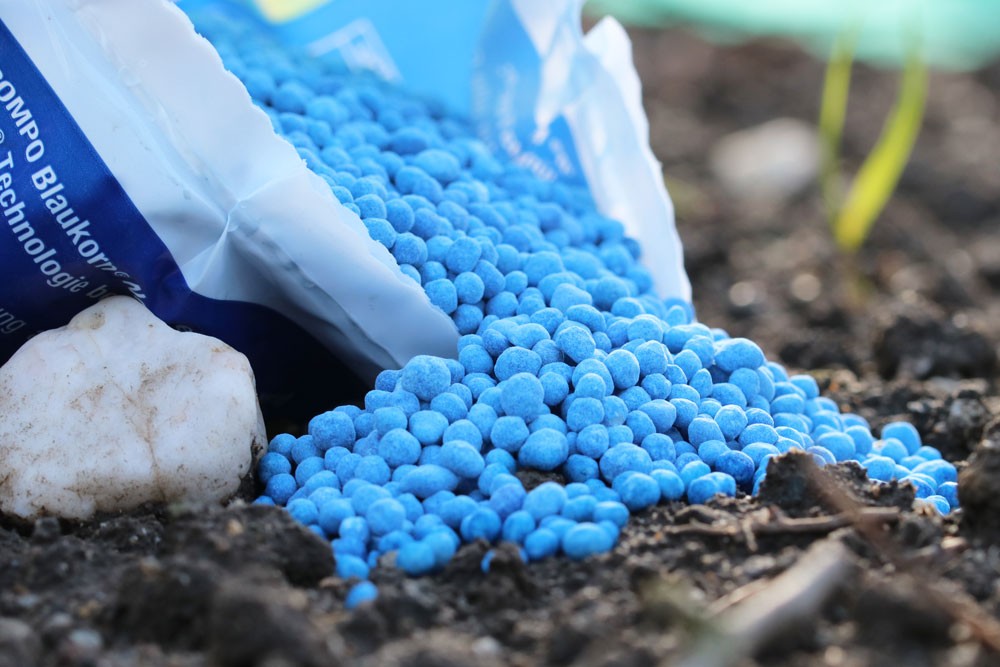
Blue grain is a high-dose liquid fertilizer that acts extremely quickly. This benefits the tomato plants especially in the growth phase, which is why the industrial fertilizer is often used at the beginning of the season. However, caution is advised here, because blue grain in larger quantities can be toxic to both humans and animals!
- use during the growth phase
- intended for short-term nutrient supply
- once a month is sufficient
- do not use in combination with other fertilizers!
- overfertilization easily possible
Fresh horse manure
Fresh horse manure, although extremely rich in nutrients, is not suitable as a fertilizer during the season. This is due in part to the fact that horse manure releases tremendous heat during decomposition. However, amateur gardeners can take advantage of the heat buildup by preparing the vegetable bed with fresh horse manure before sowing. This not only keeps the soil warm, but also provides nutrients.
- Prepare bed before sowing
- dig a 30 – 50 cm deep planting hole
- cover soil with 10 cm thick layer of straw
- put a 30 cm layer of horse manure on it
- Fill the planting hole with soil
Tomato roots should not come into contact with horse manure!
Compost
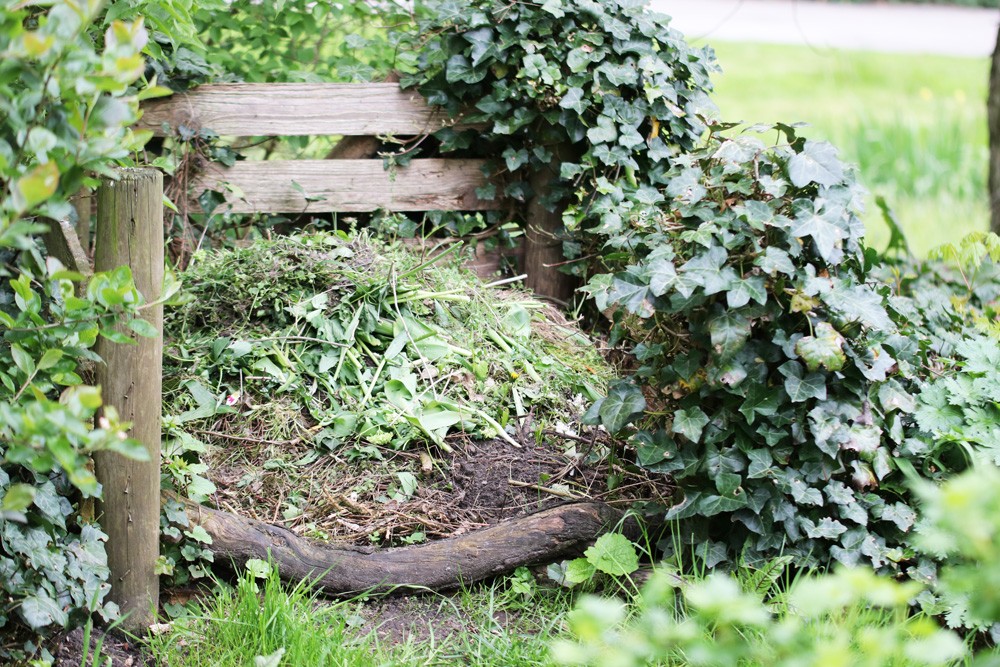
Among amateur gardeners fertilizing with compost is extremely popular, and rightly so! Because the fertilizer is not only environmentally friendly, but also can be made yourself and is therefore a cost-effective alternative. The organic fertilizer can be used with pleasure during the whole tomato season. However, it should be noted that compost must be used repeatedly:
- Sift compost and work it into the soil.
- fertilize about every 2 weeks
- until the beginning of flowering
Home remedies: coffee grounds, nettle decoction, tea
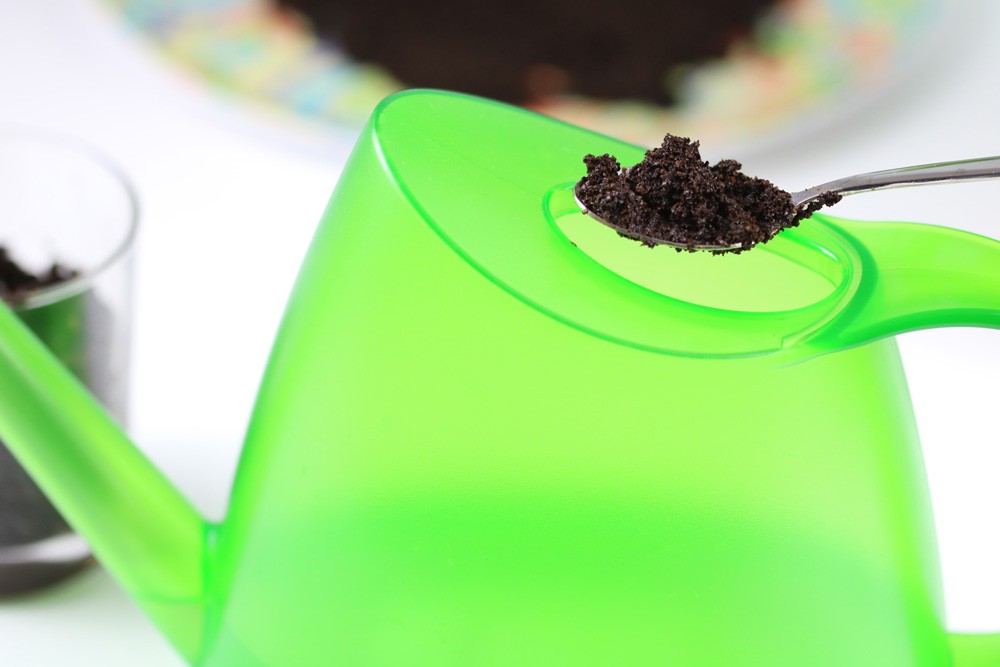
In addition to the known organic and mineral fertilizers, there are also quite a few home remedies that provide tomato plants with nutrients. Here, especially coffee grounds, nettle decoction and tea have proven their worth. These home remedies contain important nutrients for tomatoes, but in comparatively small quantities. Overfertilization is not possible, but neither is a sufficient supply of nutrients. Coffee grounds and Co can be used however gladly as addition to the conventional fertilizers and be used the whole season over.
Wintering / perennial plants
Tomatoes are usually cultivated as annuals, so autumn is basically the end of the tomato season. At this time, generally stop fertilizing the plants and dispose of them after harvest. However, it may be possible to grow tomato plants perennial and winter them accordingly. The most promising in this regard are small-growing tomato varieties, such as bush tomatoes. Depending on where and how the tomatoes overwinter, fertilizing varies:
- Windowsill and conservatory: do not fertilize from October onwards.
- fertilize again only from March
- Greenhouse: fertilize little, use potassium-rich fertilizer

